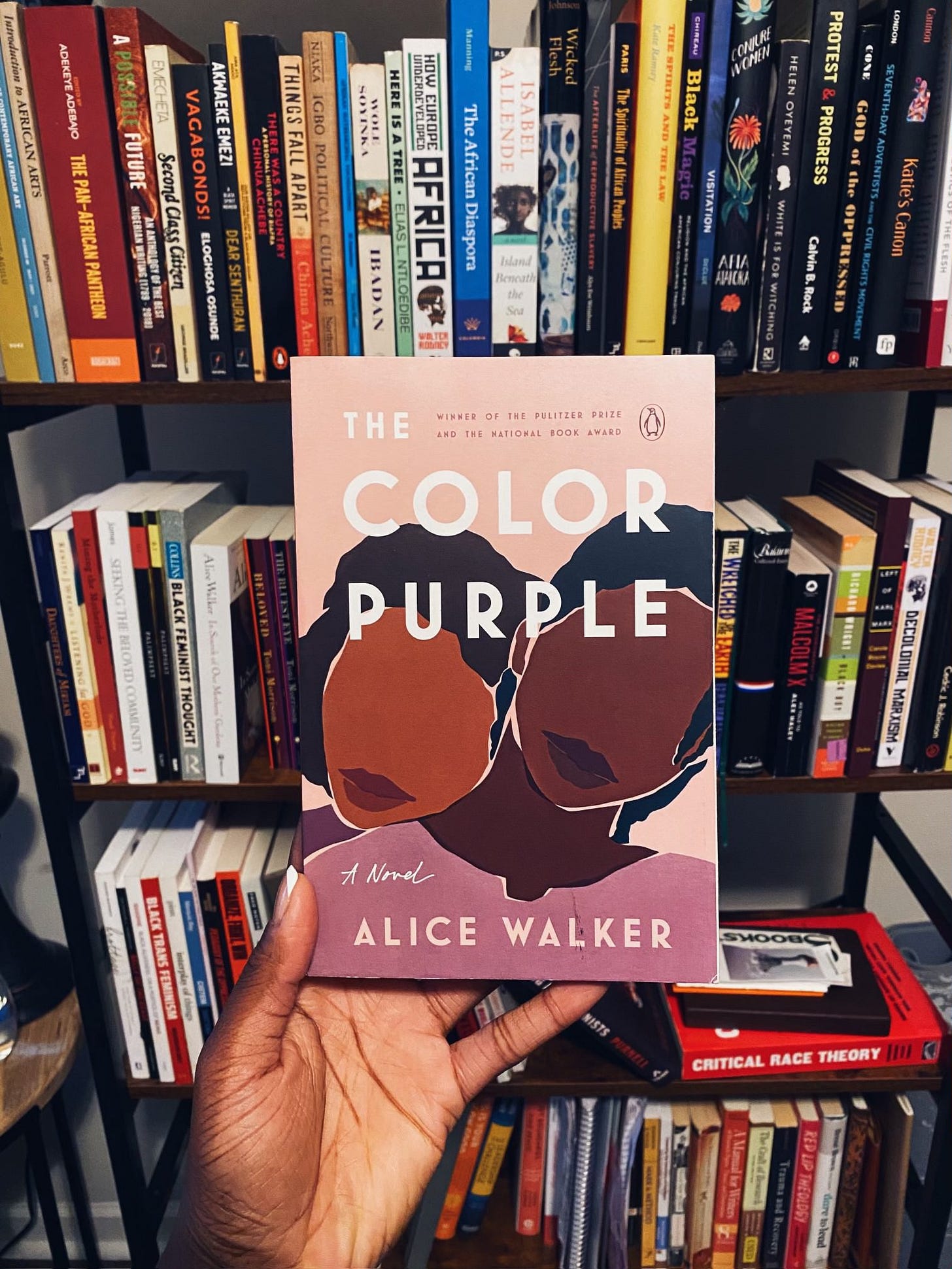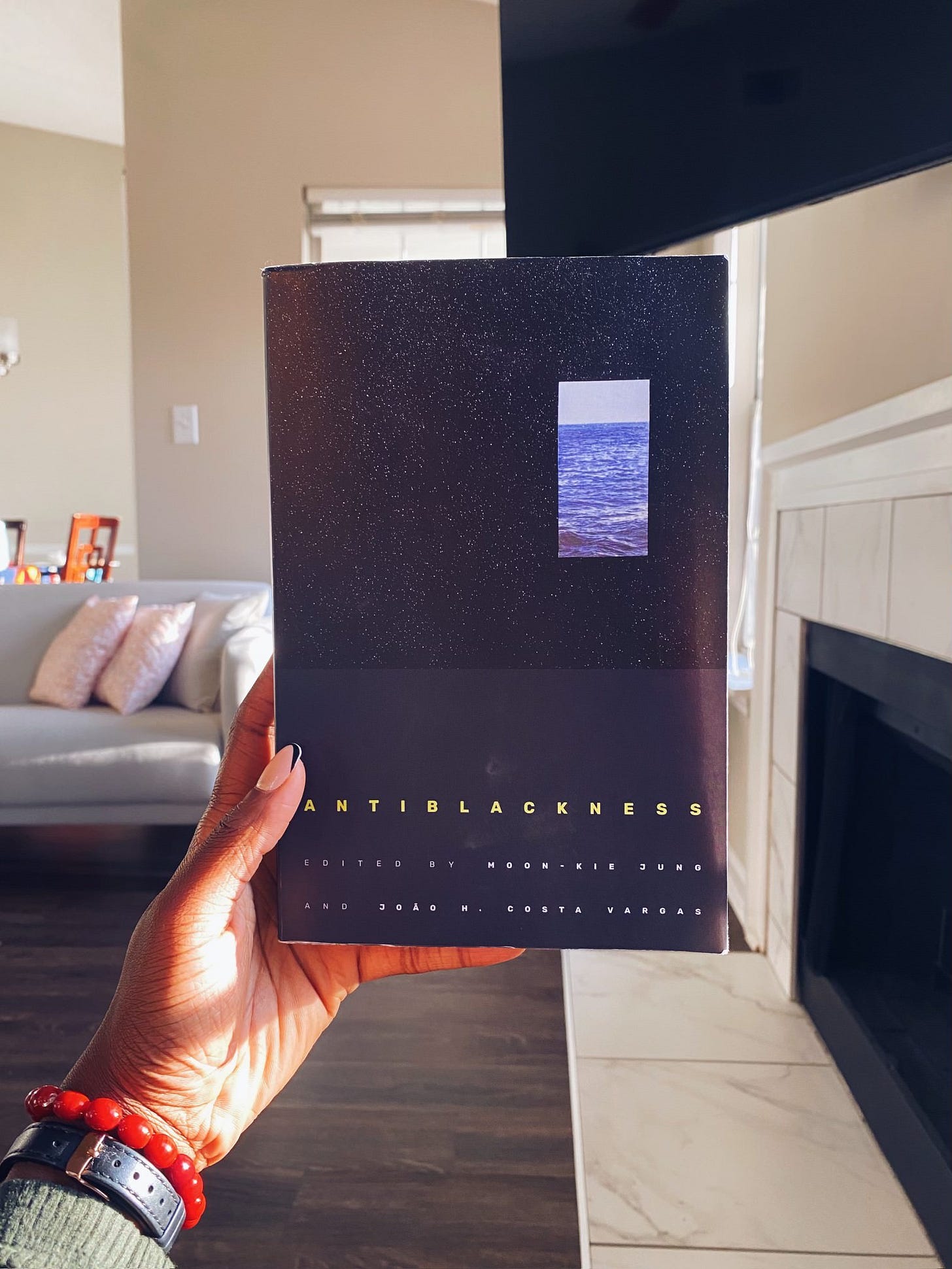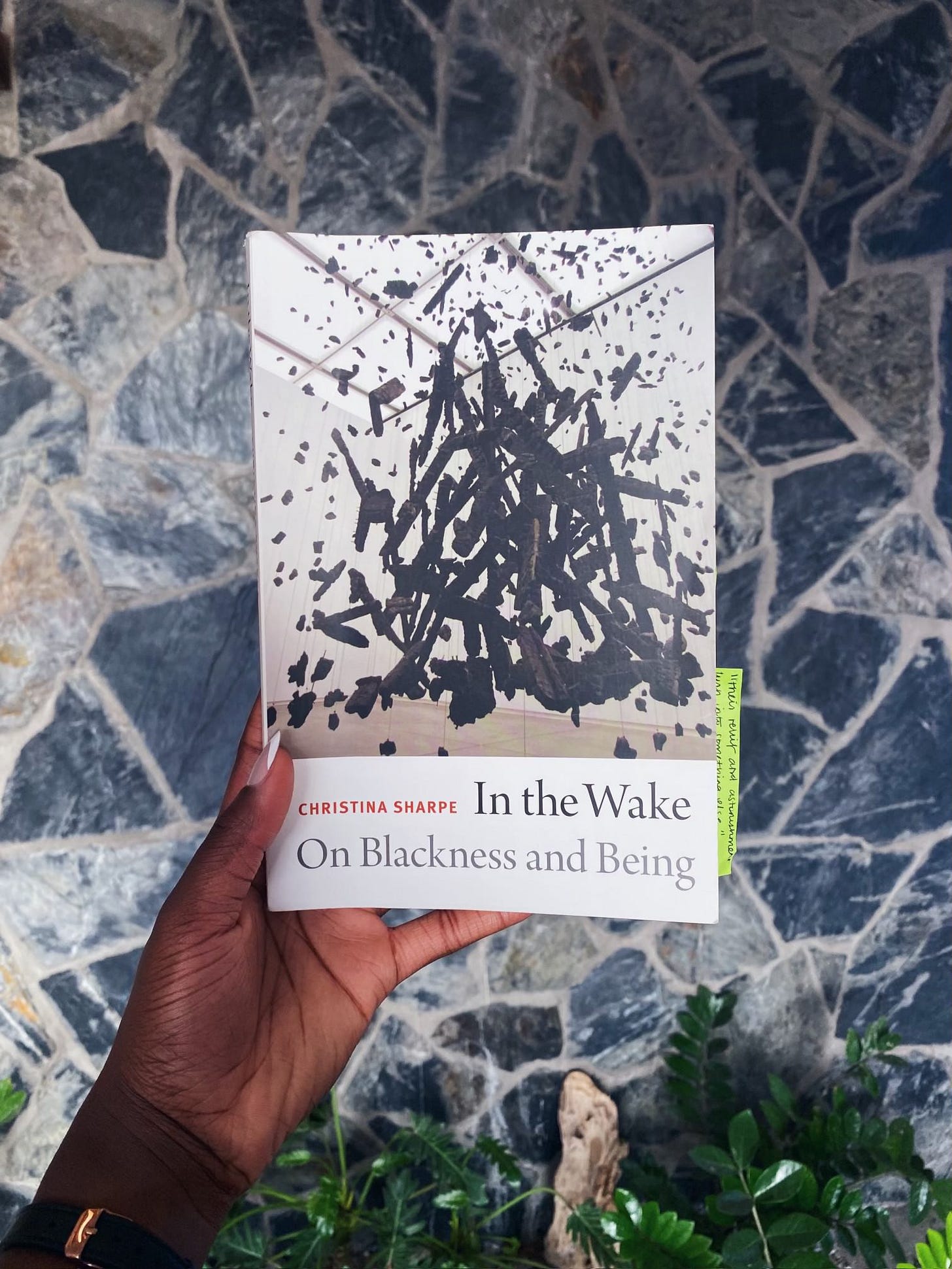Hey, y’all! Thank you for the warm welcome through the comments, emails, and notes. I’m excited to be back, and hello to our new subscribers!
Let me re-introduce myself. I’m Chinyere, a writer and editor trained in womanist theological ethics and conflict analysis – hence the name The Conflicted Womanist. I always have questions about the world, people, our stories, and ourselves, so I’m curious to find the answers and connect with others along the way.
I’m Nigerian-American, a Gemini (if that’s your fix), and a lover of all things scarlet red and gold. I’m also pretty sure that carrot cake is the best dessert to exist! Read more about me, here.
TCW, The Conflicted Womanist, birthed in November 2020 but in space for much longer than that, is a tender creation of mine that I’m most proud of. This is my baby. TCW’s gone through many revolutions since its public launch, but consider this space a living educational laboratory to the expansive realms of womanist, Black feminist(s), critical theory, political education, & African diaspora literature for personal and social transformation. In short, TCW is a commitment to the love, study, care, and keeping of Black diasporic people. Read more about TCW, here.
As shared in the last post, TCW is offering some new things for readers this season. Free subscribers receive occasional public posts like this one. However, TCW is a labor of love, and, as an independent writer, this is part of the work I do to support myself. In short, I thoroughly believe in paying Black women for their labor.
Paid subscribers receive frequent posts, in line with what TCW’s about, including access to the full archive. For $7 a month, or $75 a year, you’ll receive reading lists, study guides, reflection questions, or topic-centered “syllabi” for personal and group study.
Currently called “The Footnotes,” these resources are meant to identify, read and engage with the conversation partners whose works inspired the latest piece. Because I believe so much learning can and does happen outside the academy, these resources are meant to encourage and facilitate critical thought and sharpen engagement with the world(s) we live in.
I’m excited for the revolutions to happen through TCW as a living educational laboratory, and give thanks to each of you for your support through sharing, commenting, liking, and subscribing. Thank you!
The Footnotes: Your Yes Will Kill You
*Readings (all are hyperlinked to online formats for free accessibility. The book, “Antiblackness,” is not.)
In case you missed the post…
Womanist Theology - emilie m. townes
When drafting this piece, I first thought of the Black religious women of my upbringing. My mothers, my aunts, the Deaconesses, my sisters, and even my previous time in leadership at my Church. The (extensive) time spent in church, the reminders given by the elders about what good Christian young women are supposed to be like, and how “the Mothers” seemed to give so much and receive so little. Looking at their stories began to show cracks in what it means to believe that God deserves our all.
Taking a zoom-out approach to what I found happening to/with those in my immediate circles, I began to see connections in the lived realities of Black religious women across the Diaspora and how the Church gets tangled up in the mix. From my graduate thesis on the story of Tabitha in Acts 9:36-42 to the Church mothers wrapped in the archives of our home churches – it’s there, a faith that needs you dead to function.
Rev. emilie m. townes (my beloved dean!), one of the prominent voices and innovators of the field of womanist theology and womanist ethics, provides this foundational resource on who & what is God/god to the Black woman, and vice versa. townes’ resource of Womanist Theology is foundational for understanding the intersecting ways that class, gender, sexuality, and race are absolutely theological problems and realities to contend with. And without doing so, it’s clearer to see how “We are all one in Christ” can quickly become a cop-out verse.
It matters the way that scriptural texts such as Romans 12:1 (I appeal to you therefore, brothers and sisters, on the basis of God’s mercy, to present your bodies as a living sacrifice, holy and acceptable to God, which is your reasonable act of worship.) and Matthew 16:24-26 (Then Jesus told his disciples, “If any wish to come after me, let them deny themselves and take up their cross and follow me. 25 For those who want to save their life will lose it, and those who lose their life for my sake will find it. 26 For what will it profit them if they gain the whole world but forfeit their life? Or what will they give in return for their life?) are taken up, preached, and how these words take flesh upon congregants’ bodies, and more specifically, Black religious women’s bodies.
townes goes further in this piece to differentiate between Jesus and Christ by keeping in conversation one of Dr. Jacquelyn Grant’s notable works, White Women's Christ and Black Women's Jesus: Feminist Christology and Womanist Response (see pg. 166 in Womanist Theology for this excerpt). Here, Jesus knows more intimately the experiences of Black women and works on their behalf. Christ, however, still upholds an elitist, male/white-dominated society that transcends time and space. Growing up, Jesus and Christ were seen as one, but it wasn’t until reading these works that I began to see the difference.
Alice Walker’s Jesus: A Womanist Paradox
“In search of rescue and comfort, the character writes to the only god she knows—the god of an alienating form of Christianity, a false and crippling ideology handed to Black people from enslavement, “a God designed to guide and further the desires of another people, a God who thought of blackness as a curse” (Walker 1982, 1992, location 14). Celie addresses her epistolary prayers to a white, male god whom she does not know and who does not exist in history nor within Black women’s self-defined principles of faith. Because this god is an ideological counterfeit, a lie of white supremacy, he cannot answer. Instead of comfort he leaves Celie alienated within cries for help going nowhere to no one.” Celie ends this communication when she meets a woman named Shug Avery…Shug redirects Celie’s understanding of the divine. “God is inside you and inside everybody else,” she says. “You come into the world with God. But only them that search for it inside find it...God ain’t a he or a she, but an It” (Walker 1982, 195).2 With this text, Walker joins other women of the period in questioning the gender of God as well as male-scripted faith and Christology.”
Debra King wrote this article based on Alice Walker’s 1982 novel, The Color Purple, and how Walker challenges the view of God as automatically Christian. What will it mean to view God beyond a Christian lens? What gets left behind, and what gets taken up? As in, it’s easy to equate God as Christian, but God is not.
Afropessimism - Frank B. Wilderson III / Antiblackness - Moon-Kie Jung, João H. Costa Vargas
I see TCW moving towards solid engagement with Afropessimism as a grounding theory to help understand why the world does what it does and operates in the ways it does. Especially regarding Christian religion, Blackness, relationships, and “life”/”death.” Along with Frank B. Wilderson III, I also plan to read more into the works of Hortense J. Spillers, Sylvia Wynter, Joy James, Christina Sharpe, Zakkiyah Iman Jackson, and more who are in this realm.
One of the drivers for this piece was trying to move the needle beyond believing that just because a Church is externally up-to-date or says the right keywords in service, it’s automatically a safe place. I’m concerned with what’s recognized as the norm and if those areas still enable accentuated harm in an already harmful place. I’m seeing that conversations around dismantling racism lean more towards trying to edit the current environment to “fit” ourselves into the picture or finally having a seat at the table. Understanding that the world itself is antiBlack and what actually directs what happens in our world shifts our movement from “editing” to “ending” a world that kills.
In the Wake: On Blackness and Being - Christina Sharpe
What a powerful, powerful book, and it’s looking like the next upcoming letters will spur from it, so I’m looking forward to seeing what comes to light. Chapter one of this book was part of the grounding for the last letter. Just yesterday, a great piece on Sharpe’s In The Wake came out by Hafizah Augustus Geter. Take a read.
“We must be (and we already are) about the work of what I am calling wake work as a theory and praxis of the wake; a theory and a praxis of Black being in diaspora.” (19)
“How does one memorialize chattel slavery and its afterlives, which are unfolding still? How do we memorialize an event that is still ongoing? Might we instead understand the absence of a National Slavery Museum in the United States as recognition of the ongoingness of the conditions of capture? How does one, in the words so often used by such institutions, “come to terms with, (which usually means move past) ongoing and quotidian atrocity?” (20)
Reflection Questions
I’ve been chatting with a few people after this last letter, so I have a few questions I would love reading your insight(s) on.
What does it mean to be in God’s will/in alignment with God? What do you know to be true about this God?
What comes up when sitting with the idea/reality that the Church produces, requires, and worships death in its day-to-day dealings and more broadly?
Why is there a fear of betraying a Church/church that truly does not have any commitment towards you?






